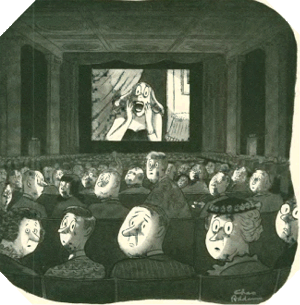B: Many of your friendships have ended in estrangement … why are things like that?
S: Breaking off doesn’t affect me in the least. A thing is dead – that’s all.
B: Can you tell me why it doesn’t affect you?
S: I think I did not feel a deep friendship for some of the men who were among the closer of my friends.
B: But what do you mean when you say, “I didn’t feel a deep friendship”? Who have you had a deep friendship with?
S: With some women … but generally speaking, there weren’t deep sensitive elements between the other fellows and myself.
B: Do you mean that what existed was rather a certain intellectual understanding, and that this understanding came to an end either for political reasons or for others, then everything fell to pieces?
S: Yes, that’s right.
B: The emotional bond that makes one overlook certain divergences did not remain …
S: Exactly….
B: And on the whole you always prefer the present.
S: The present is concrete and real. Yesterday is not so sharp and clear, and I’m not yet thinking of tomorrow. For me there is a preference for the present over the past. There are people who like the past better because they attribute an aesthetic or cultural value to it. I don’t. In moving into the past the present dies. It loses its value of dawning life. It still belongs to life. I can refer back to it; but it no longer possesses that quality that is given to every moment insofar as I am living it and which it loses when I am living it no more.
B: No doubt that’s why you have never found it very hard to break with your friends
S: Yes. I began a new life without them.
B: Is that because as soon as a thing belongs to the past it is really abolished for you?
S: Yes. And as for the friends who are still left to me, still living, they have to have a fresh present immediacy so as not to be continually harking back to the same one. I mustn’t see them as they were yesterday or the day before, with the same worries, the same ideas, the same ways of speaking. There has to be a change.
S: Breaking off doesn’t affect me in the least. A thing is dead – that’s all.
B: Can you tell me why it doesn’t affect you?
S: I think I did not feel a deep friendship for some of the men who were among the closer of my friends.
B: But what do you mean when you say, “I didn’t feel a deep friendship”? Who have you had a deep friendship with?
S: With some women … but generally speaking, there weren’t deep sensitive elements between the other fellows and myself.
B: Do you mean that what existed was rather a certain intellectual understanding, and that this understanding came to an end either for political reasons or for others, then everything fell to pieces?
S: Yes, that’s right.
B: The emotional bond that makes one overlook certain divergences did not remain …
S: Exactly….
B: And on the whole you always prefer the present.
S: The present is concrete and real. Yesterday is not so sharp and clear, and I’m not yet thinking of tomorrow. For me there is a preference for the present over the past. There are people who like the past better because they attribute an aesthetic or cultural value to it. I don’t. In moving into the past the present dies. It loses its value of dawning life. It still belongs to life. I can refer back to it; but it no longer possesses that quality that is given to every moment insofar as I am living it and which it loses when I am living it no more.
B: No doubt that’s why you have never found it very hard to break with your friends
S: Yes. I began a new life without them.
B: Is that because as soon as a thing belongs to the past it is really abolished for you?
S: Yes. And as for the friends who are still left to me, still living, they have to have a fresh present immediacy so as not to be continually harking back to the same one. I mustn’t see them as they were yesterday or the day before, with the same worries, the same ideas, the same ways of speaking. There has to be a change.
... Jean-Paul Sartre (S) (1905-80) in conversation with Simone de Beauvoir (B) (1908-86) in late life.







